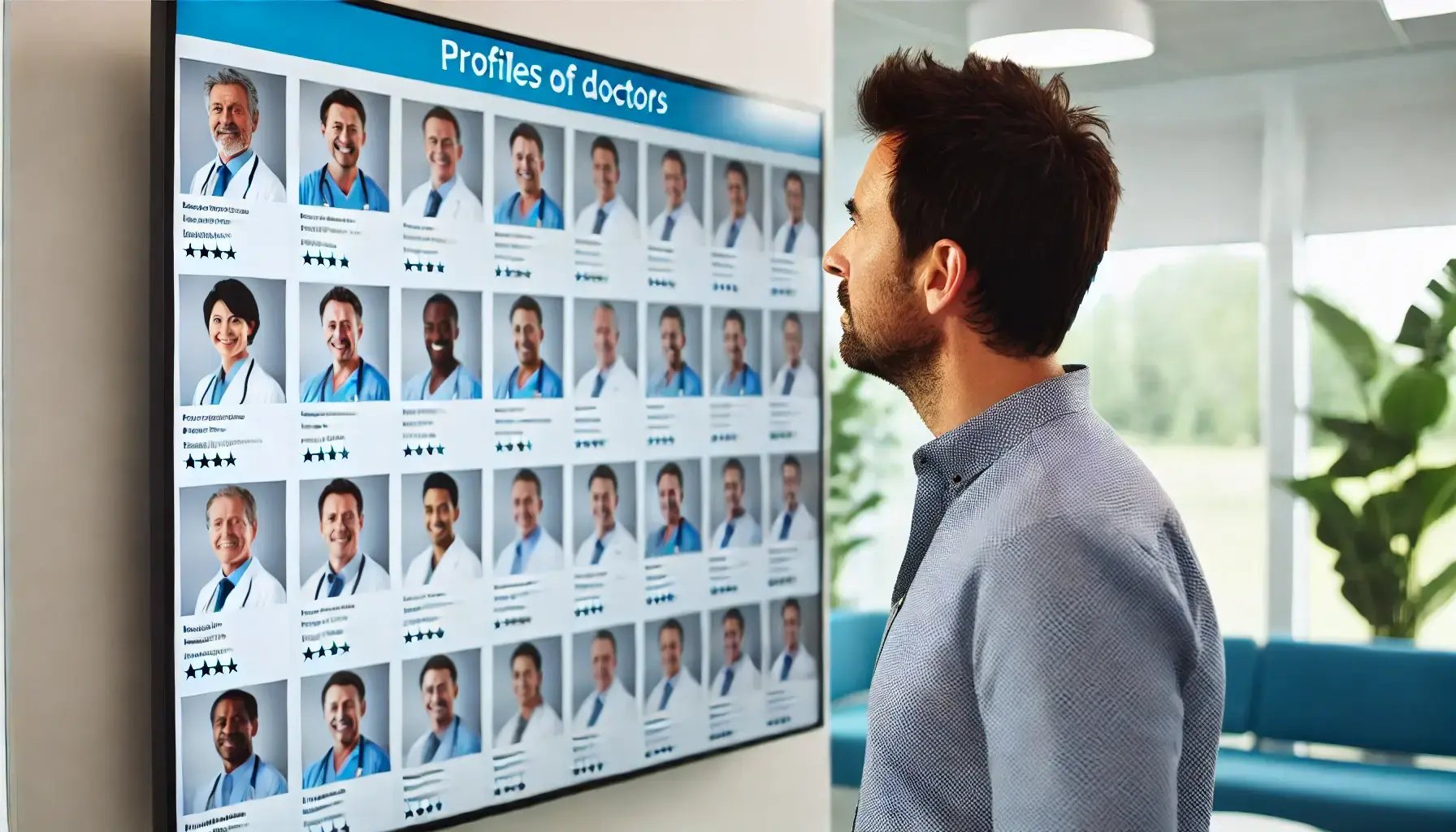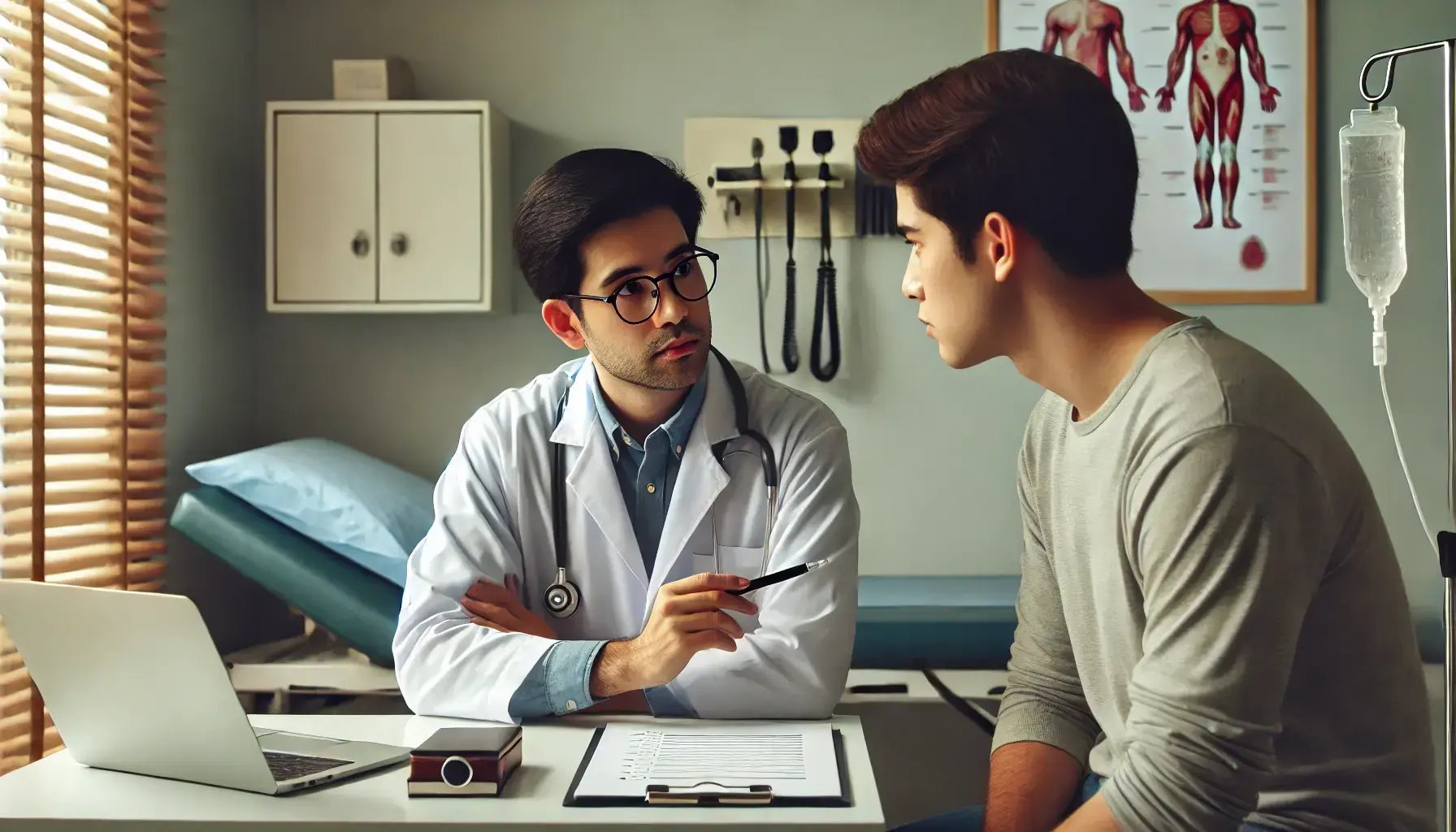When is it Too Late to go to the Doctor After a Car Accident?

Legally reviewed by:
Daniel Smith August 8, 2024
The immediate aftermath of a crash can be overwhelming, and many people may not feel injured right away due to shock or adrenaline. But seeking medical attention ASAP is critical. Delaying or not seeing a doctor can have serious health and legal consequences.
This article will cover the importance of getting medical care after an accident, the timeframes to see a doctor, what happens if you wait too long, and what to do if you’ve missed your doctor’s appointment.
Should You See a Doctor After a Car Crash?
Importance of Medical Evaluation for Seemingly Minor Accidents
Even if you feel fine after a car crash, you need to get evaluated. Minor accidents can cause significant injuries that aren’t immediately apparent. You may feel okay because adrenaline masks the pain, but you later find out you have serious issues.
For example, the Mayo Clinic says whiplash symptoms might not appear immediately. Evaluating early ensures you know of potential injuries to prevent complications and recover faster.
Hidden Injuries and Delayed Symptoms
Many car accident injuries, like whiplash, concussions, and internal injuries, don’t show up right away. Whiplash can take 24 hours or more to start hurting, and concussion symptoms can show up days later. Treating these injuries early can prevent long-term health problems and complications.
Legal Implications of Not Seeking Medical Attention
Legally, not getting medical attention can help your personal injury claim. Insurance companies will argue your injuries are not bad or were caused by something else. Medical documentation right away is crucial in supporting your claim and proving the connection between the accident and your injuries.
For example, in Florida, you must see a doctor within 14 days to be eligible for personal injury protection benefits. Without it, you’ll struggle to prove your case in court or to insurance adjusters.
Insurance Claim Considerations
Insurance companies require medical attention as part of the claim process. Delays can result in a denied or reduced claim. Documenting your injuries and treatment immediately bolsters your claim. Medical reports early on are key evidence in your claim, so you get what you’re owed.
Ideal Timeframe for Seeing a Doctor After Your Crash
Immediate Medical Attention (Within 24 Hours)
You should see a doctor within the first 24 hours. Immediate medical attention means any injuries are caught and treated quickly, reducing the risk of complications. Early diagnosis and treatment can prevent minor injuries from turning into major ones.
For example, a study in the Journal of Clinical Orthopaedics and Trauma found that early intervention in whiplash injuries reduces the likelihood of chronic pain. Early visitation provides essential evidence for future legal or insurance claims.
Within 72 Hours
If you can’t see a doctor within 24 hours, aim for within 72 hours. This is a critical window as some injuries like concussions or whiplash may not show up right away but can get worse over time. Seeing a doctor within this time allows for early intervention and gives you a reasonable window to document any injuries for insurance purposes.
Within a Week
You can still see a doctor within a week of the accident, but the longer you wait, the harder it is to connect your injuries to the accident. Waiting up to a week can complicate your insurance claims and legal cases as proving the accident caused your injuries gets harder. Remember, insurance adjusters will use the delay against you, saying your injuries weren’t caused by the accident.
Consequences of Waiting Longer
Waiting more than a week to seek medical attention can have consequences. Health-wise, injuries can get worse, causing chronic pain, long-term complications, or permanent damage.
Legally, insurance companies may argue that the delay suggests your injuries are not severe or unrelated to the accident, leading to a denial of your claim or a reduction of your settlement. Keep in mind that delays can harm your credibility and your claim.
State-Specific Considerations for Timelines
States have different medical timelines after an accident. Knowing your state’s rules is critical to getting the benefits and compensation you’re entitled to. Talk to a local attorney to help you navigate these rules. California and many other states have a 2-year statute of limitations for personal injury claims.
Do I Need to See a Specific Doctor?
Types of Medical Professionals to Consider
After a car accident, you don’t have to see a specific type of doctor, but the right doctor can make a big difference in your recovery and case. ER doctors are great for acute injuries and immediate care.
Primary care doctors are good for ongoing treatment and follow-up care. Specialists are necessary for specific injuries like back or head injuries. They include:
- Chiropractors
- Neurologists
- Orthopedists
Importance of Documentation from Licensed Medical Professionals
Documentation from licensed medical professionals is critical. It gets you the proper care and provides evidence for any legal or insurance claims. Thorough documentation of your injuries and treatments by a licensed professional strengthens your case and supports your claims. Make sure all treatments and diagnoses are recorded accurately.
When to See Specialists (Chiropractors, Neurologists, Orthopedists)
Specialists come in when you need targeted treatment. For example, chiropractors can do spinal adjustments and pain management, neurologists can address brain and nerve injuries, and orthopedists can handle bone and joint issues. Specialists can provide treatment plans that general practitioners may not.
Considerations for Choosing the Right Medical Provider
When choosing a medical provider, consider their experience with car accident injuries. Providers with expertise in car accident injuries can provide full care and documentation, which is essential for your recovery and case.
Make sure the provider understands car accident injuries and can support your legal needs. Read reviews, ask for referrals, and check credentials to make an informed decision.
Consequences of Bypassing Medical Treatment
Health Risks of Untreated Injuries
Waiting too long to get medical attention after a car accident can lead to health risks. Unattended injuries can get worse over time and turn into chronic pain, long-term complications, or permanent damage.
For example, a minor whiplash can turn into chronic neck pain if not treated promptly, and untreated head injuries can lead to cognitive issues.
Impact on Insurance Claims and Compensation
Legally, if you don’t seek medical attention promptly, it can weaken your insurance claims and compensation. Insurance companies can argue that the delay means your injuries are not serious or not related to the accident. This can lead to claim denial or reduced settlements.
Medical attention and documentation are key to supporting your claims. Delays give the insurer reasons to contest your claim.
Statute of Limitations Considerations
Most states have a statute of limitations for personal injury claims, usually 1-3 years. Delaying medical care can make it harder to prove your injuries were caused by the accident and complicate your legal case.
Further, unless you don’t know the extent of your injuries, you can’t accurately assess the value of seeking legal recourse for your injuries.
Challenges in Proving Causation
The longer you wait to seek medical attention, the harder it is to prove your injuries were caused by the car accident. Insurance companies and opposing counsel can argue that the delay means your injuries were caused or worsened by your conduct after the accident.
Medical documentation immediately after the accident helps establish a clear connection between the accident and your injuries.
Potential for Claim Denial or Reduced Settlement
Avoiding medical care can lead to claim denial or reduced settlements. Insurance companies can argue that your injuries are not severe or unrelated to the accident, which can mean denial. Medical attention and documentation are crucial to getting fair compensation.
What Type of Injuries Will They Be Looking For?
Common Car Accident Injuries
Medical professionals will look for all sorts of injuries after a car accident, both familiar and not so common. Common injuries are whiplash, soft tissue injuries, and concussions.
Whiplash is when your neck is jolted suddenly, and the muscles and ligaments are strained. Soft tissue injuries are sprains and strains on muscles, tendons, and ligaments. Concussions are brain injuries from a blow to the head or sudden movement.
Hidden Injuries That May Not Be Immediately Apparent
Not-so-obvious injuries like internal bleeding or traumatic brain injuries may not show symptoms immediately but can be life-threatening if left untreated. Diagnostic tests like X-rays, MRIs, or CT scans are used to diagnose these injuries. Recognizing injuries that are not so apparent early means prompt treatment and reduced complication risk.
Diagnostic Tests Typically Performed
Doctors will use X-rays to check for broken bones, MRIs to see soft tissues and organs, and CT scans to get detailed images of your body to diagnose internal injuries. These tests are essential for a proper diagnosis. Early detection through diagnostic tests means minor injuries don’t become major, and you get the appropriate treatment.
Importance of Follow-Up Care and Monitoring
Follow-up and monitoring are important to address any delayed symptoms and adjust treatment plans as needed. Regular follow-up visits allow doctors to see how you are recovering and make changes to your treatment. This ongoing care helps manage symptoms and get you fully recovered.
Steps to Take If You've Delayed Seeing a Doctor
Immediate Actions to Take
You must act now if you’ve waited to see a doctor after an accident. Document your symptoms and the accident details. Contact your insurance company to let them know you’ve delayed and get their guidance on the next steps. Consider getting legal advice from a car accident attorney to understand your options and protect yourself.
Documenting Your Symptoms and the Accident
Documenting your symptoms and the accident details is essential, even if you’ve waited for medical attention. Write down any pain, discomfort, or changes in your condition since the accident. Include the date, time, and location of the accident and any witnesses present. This will help your case and prove your injuries and their effects.
Contacting Your Insurance Company
Let your insurance company know you’ve delayed getting medical attention. Provide detailed information about your injuries and the accident.
Follow their instructions on documentation and the claims process. Timely communication with your insurer will avoid potential problems with your claim.
Seeking Legal Advice
If you’ve waited to see a doctor after a car accident, getting legal advice is a good idea. A personal injury attorney can review your case and medical records and advise you on what to do next. They can protect your legal rights and compensate you for your injuries and damages. Acting fast will help your case and improve your chances of a good outcome.
Recap
Get Medical Help Now
After a car accident, get medical attention even if you feel okay. Medical help early on will catch hidden injuries and link the accident to your health issues.
Understand the Legal Ramifications
Delaying medical care can hurt your case. Insurance companies will argue that the delay means your injuries aren’t severe or aren’t related to the accident.
Document Everything
Get all documents, including medical records, police reports, and witness statements. Documentation is crucial in building your case.
See the Right Doctors
See the ER doctor, primary care doctor, and specialists for full evaluations and treatments. Document all visits.
Follow Up on Medical Care
Follow all treatment plans and attend all follow-up appointments. Medical care helps you heal and strengthens your insurance or legal claim.
Know Your State’s Laws
Know the timelines and statutes of limitations for medical attention and claims in your state. This will help you meet legal deadlines and avoid claim denial. For example, California has a two-year statute of limitations for personal injury claims.
Consider Long-Term Health
Understand the long-term health effects of untreated injuries. Prioritize your health by getting the necessary treatments to prevent chronic conditions or complications.
Get Legal Help
Contact a personal injury attorney to guide you through the process, explain your rights, and ensure you get fair compensation.
Car Accident Settlements
Settling car accident claims involves state laws, valuing your claim, and negotiating with insurance adjusters. It’s a detailed and time-consuming process that requires attention to detail. Missing deadlines or miscalculating your claim can mean a lower settlement or claim denial.
Contact The Accident Helpers
Not sure how to handle your car accident claim? Contact The Accident Helpers now. We’ll connect you to our skilled car accident and personal injury attorney network. Visit our website or call us to schedule a free consultation. We’ll help you take care of the details so you can focus on recovery.





.jpg?width=349&height=218&name=1%20(8).jpg)
